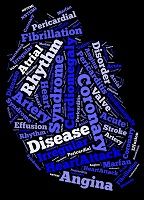Article
Gene Could Protect from Viral Myocarditis
Author(s):
The protein-coding gene FOXO may play a crucial role in defending the heart from coxsackie virus B3, according to researchers at Albert Einstein College of Medicine in the Bronx, NY.

The protein-coding gene FOXO may play a crucial role in defending the heart from coxsackie virus B3, according to researchers at Albert Einstein College of Medicine in the Bronx, NY.
In a poster abstract presented Sunday, March 15, at the 2015 American College of Cardiology annual meeting in San Diego, CA, Luise Holzhauser, MD, an internal medicine resident at Jacobi Medical Center reported on a mouse study in which the animals were infected with the virus. The mice that were deficient in the FOXO3 gene had significantly lower viral titers compared to WT accompanied by a reduced inflammatory score and diminished expression of CD3+ T cells, CD 14+ monocytes and Natural Killer (NK)p46+ cells.
“Interestingly, FOXO3a gene transfer in vitro had no effect on viral adhesion and entry but significantly inhibited coxsackievirus B3 replication in cardiac myocytes,” she wrote.
Further, “analysis of healthy human donors for the gain of function FOXO3a SNP rs9400239 revealed a significantly reduced CD107a dependent degranulation activity and IFN-y expression in donors homozygous for the allelic variant,” she continued.
That could explain why patients with coxsackie virus B3 myocarditis have a more severe course of the disease.
The conclusion is that FOXO3A is implicated in the response to viral myocarditis confining inflammation. “Increased NK cells function in FOXO3a-/- mice might play a crucial role in defense again CVB3 myocarditis, while human carriers of a FOXO31 SNP have more severe disease.
In a second study involving FOXO3a, Holzhauser and colleges found the gene appears to regular fibrosis and scar formation following myocardial infarction.
She said it does that by “direct inhibition of TGF-Beta regulated matrix remodeling via interaction with SMAD3.” The implication for clinicians may be tha the FOXO3a-SMAD3 axis might be of therapeutic interest “to abate adverse myocardial remodeling.”
2 Commerce Drive
Cranbury, NJ 08512
All rights reserved.



